Congratulations on your recent promotion offer! It's always exciting to receive recognition for your hard work and dedication. However, it's not uncommon to feel uncertain about your next steps, especially if you've decided to resign instead of accepting the new position. If you're looking for guidance on crafting a thoughtful resignation letter that expresses your gratitude while clearly outlining your decision, read on for helpful tips and a versatile template.

Gratitude and acknowledgment
Resigning from a position after receiving a promotion offer can be a complex decision filled with emotional and professional ramifications. One might experience feelings of gratitude towards the current employer for recognizing their potential through a promotion, yet they may feel compelled to pursue other opportunities that align more closely with their career goals. Acknowledgment of supportive colleagues and mentors is essential, as their guidance often plays a significant role in professional growth. This decision may involve a consideration of future career paths and personal aspirations, ensuring that one's choice reflects both appreciation for past experiences and a clear vision for the future. Professionalism and respect in communication are vital in maintaining positive relationships, even when stepping away from the organization.
Reason for resignation
Resignation from a position often arises from complex motivations. A common reason for resigning after a promotion offer may stem from a misalignment between personal career goals and the organization's expectations. Employees may desire further professional growth in different directions, such as pursuing entrepreneurial endeavors or transitioning to a sector that better aligns with their passions. Additionally, workplace culture and management styles play crucial roles in decision-making. An undesirable work environment can hinder job satisfaction, even amidst opportunities for advancement, making it necessary for individuals to assess their long-term career aspirations and opt for paths that foster personal fulfillment and professional development.
Transition plan and notice period
A recent promotion offer can lead to complex feelings and decisions within the workplace. A well-thought-out transition plan during the notice period can ensure a smooth handover of responsibilities. This plan may include documentation of all ongoing projects tied to the promoted position, like the development of the new marketing strategy for Q1 2024. Additionally, scheduling meetings with team members in major departments, like finance and human resources, will provide clarity on pending tasks and expectations. Setting a final work date allows for a minimum of two weeks' notice, complying with standard policies and providing ample time for the organization to find a suitable replacement, all while maintaining professionalism and facilitating a positive career transition.
Appreciation and memories
A resignation letter following a promotion offer can convey gratitude and reflection. During my tenure at ABC Corporation, I experienced professional growth and personal development, contributing to projects like the 2022 Product Launch, which generated a 30% increase in revenue. Collaborating with an exceptional team at the state-of-the-art headquarters in New York City allowed me to forge lasting relationships and gain invaluable knowledge. I appreciate the support from my supervisor, who recognized my potential, ultimately leading to the recent promotion offer. This opportunity affirmed my commitment and passion for the industry. As I embark on a new journey, I carry these cherished memories and valuable lessons learned with me, and I extend my heartfelt gratitude to my colleagues and mentors.
Future contact information
Facing the decision of resignation can be challenging, especially after receiving a promotion offer. Accepting a new opportunity may lead to career growth and personal development. Maintaining a positive relationship with colleagues and supervisors remains essential. Including future contact information, such as a personal email or LinkedIn profile, ensures ongoing communication and networking opportunities after leaving. Properly expressing gratitude towards the organization for the experience gained and opportunities provided creates a respectful closure. Communicating clearly about the final working day and transition period fosters a smooth handover of tasks and responsibilities, ultimately reflecting professionalism and appreciation for the past employment experience.
Letter Template For Resignation Post Promotion Offer Samples
Letter template of resignation due to new job prospects following promotion
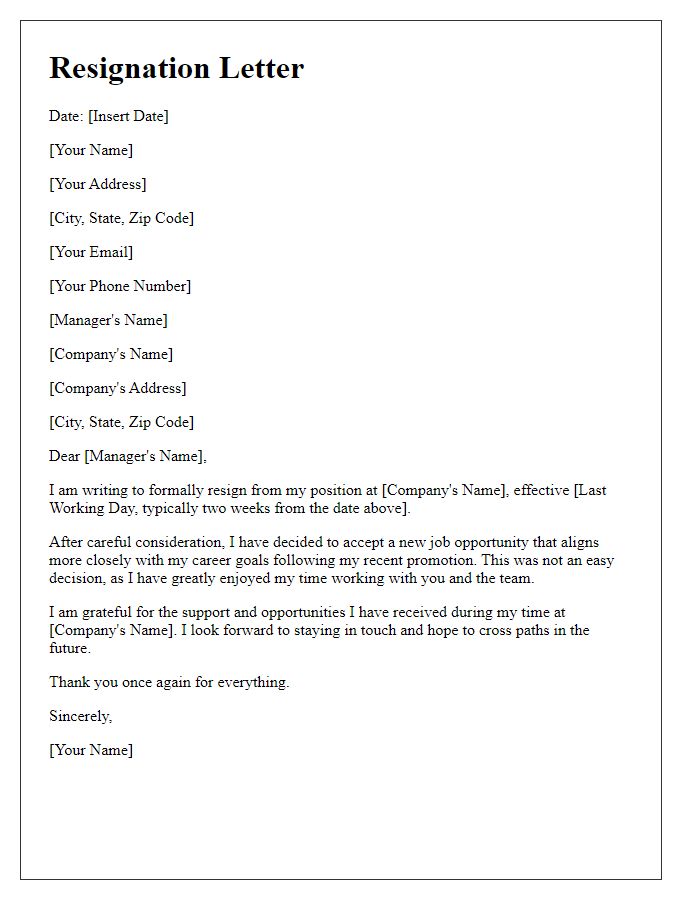
Letter template of resignation from a position after receiving a promotion
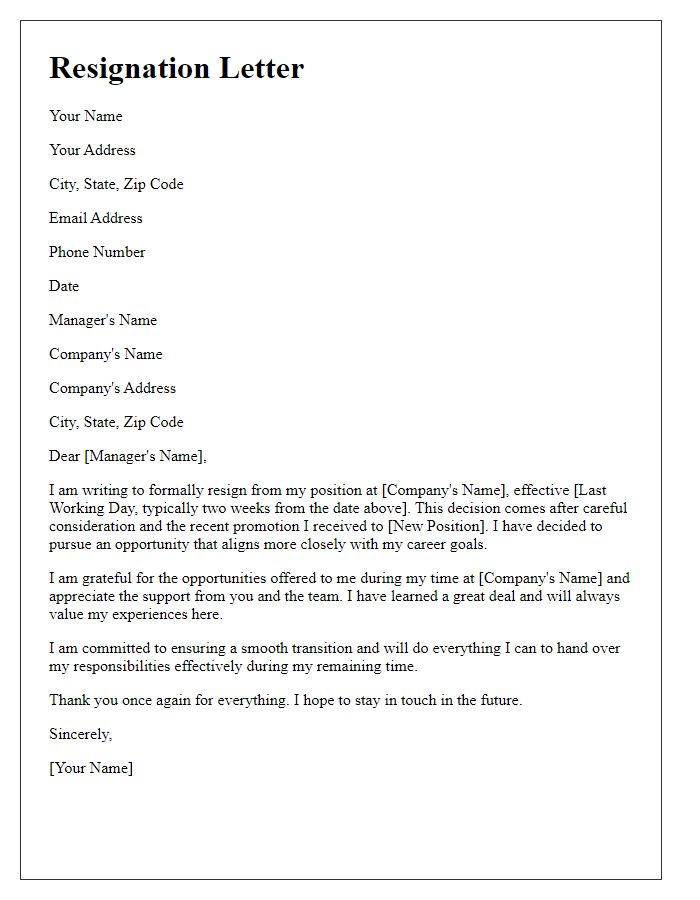
Letter template of resignation in light of a recent promotion opportunity
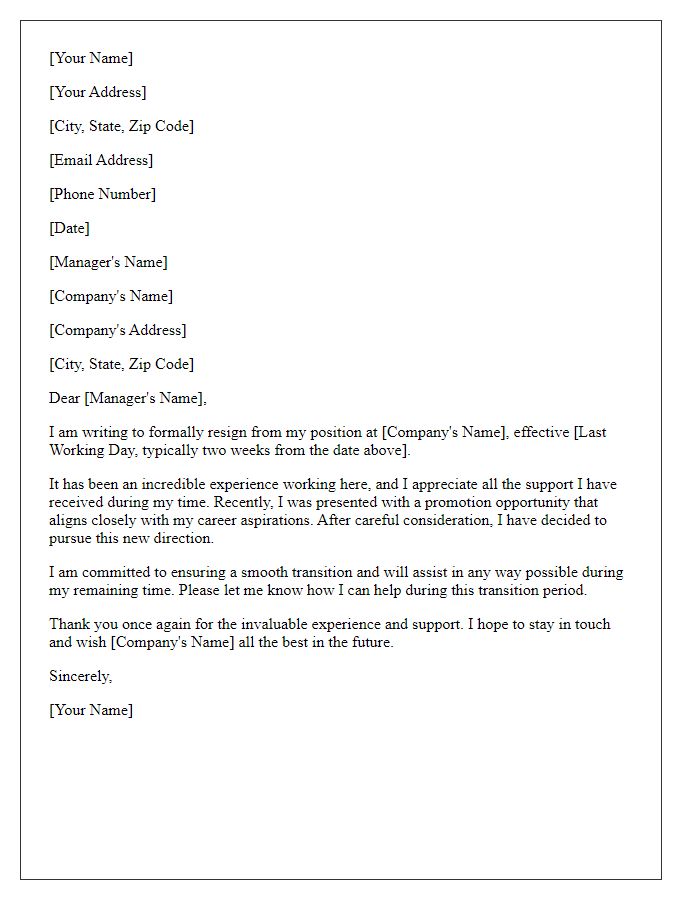
Letter template of resignation to pursue personal goals post-promotion offer
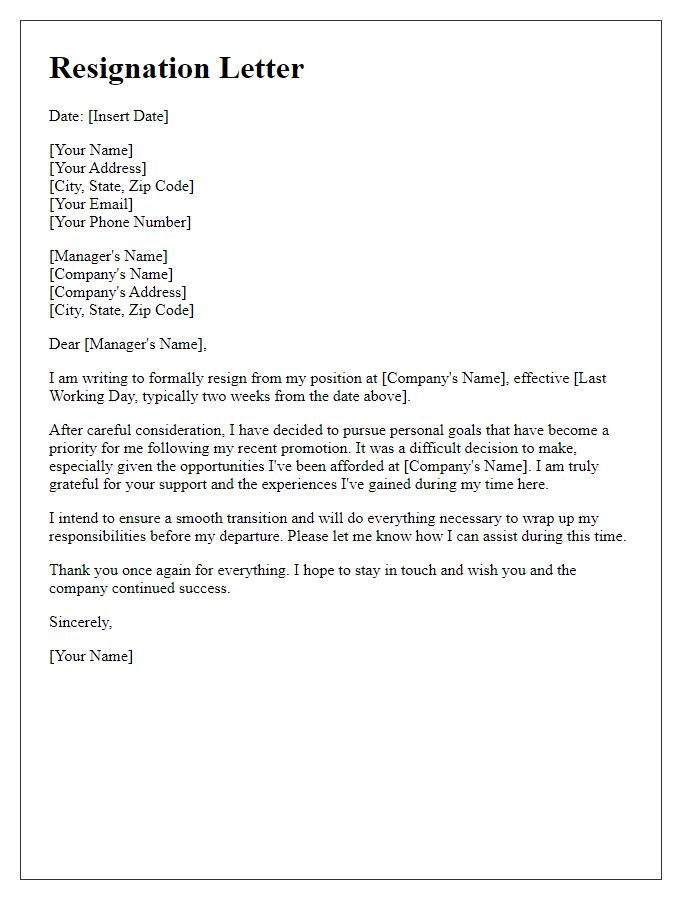
Letter template of resignation in response to a promotion and career shift
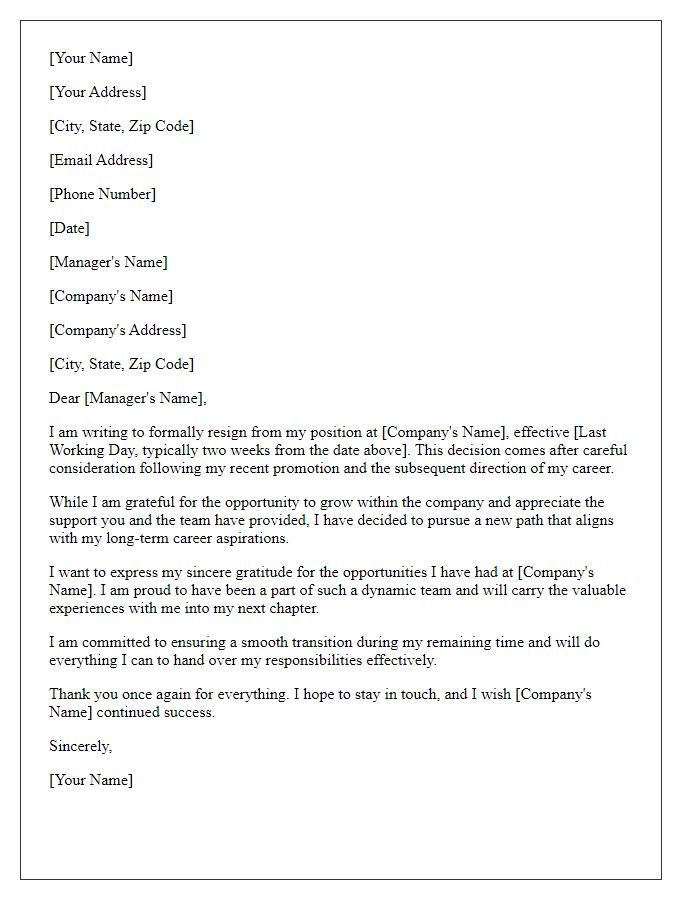
Letter template of resignation when declining a promotion for other pursuits
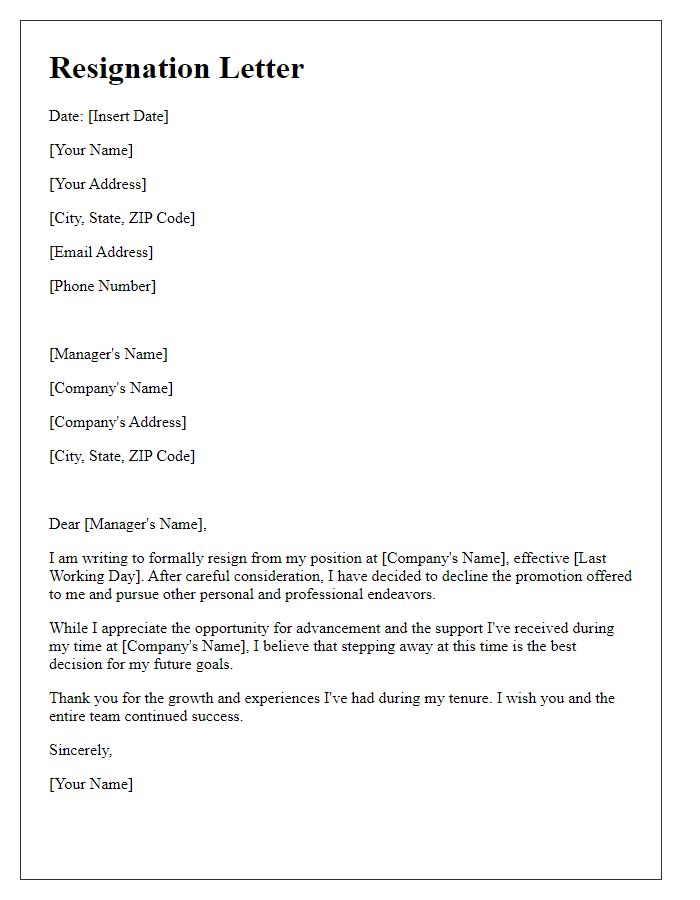

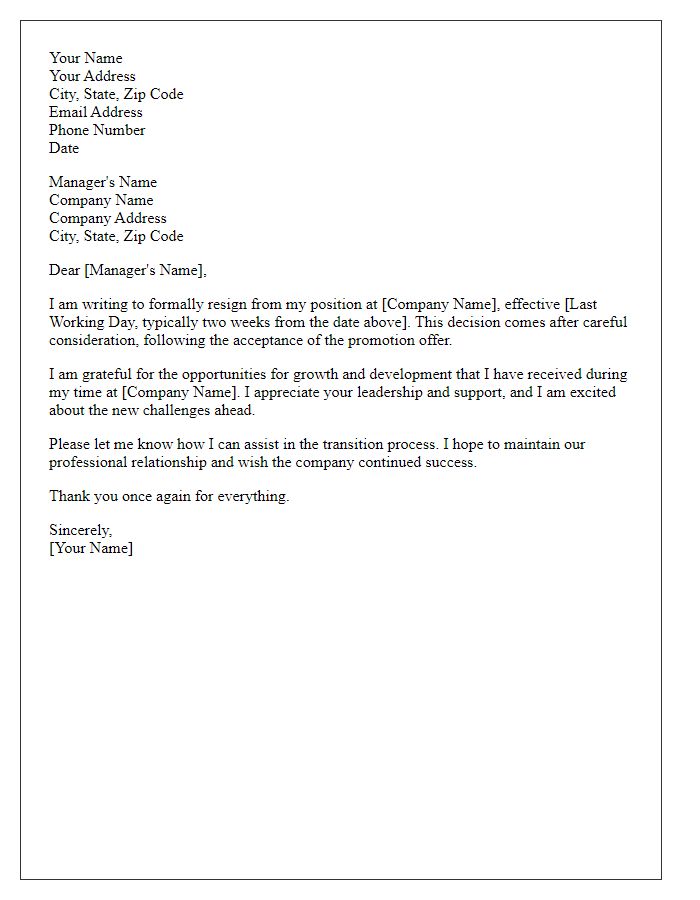
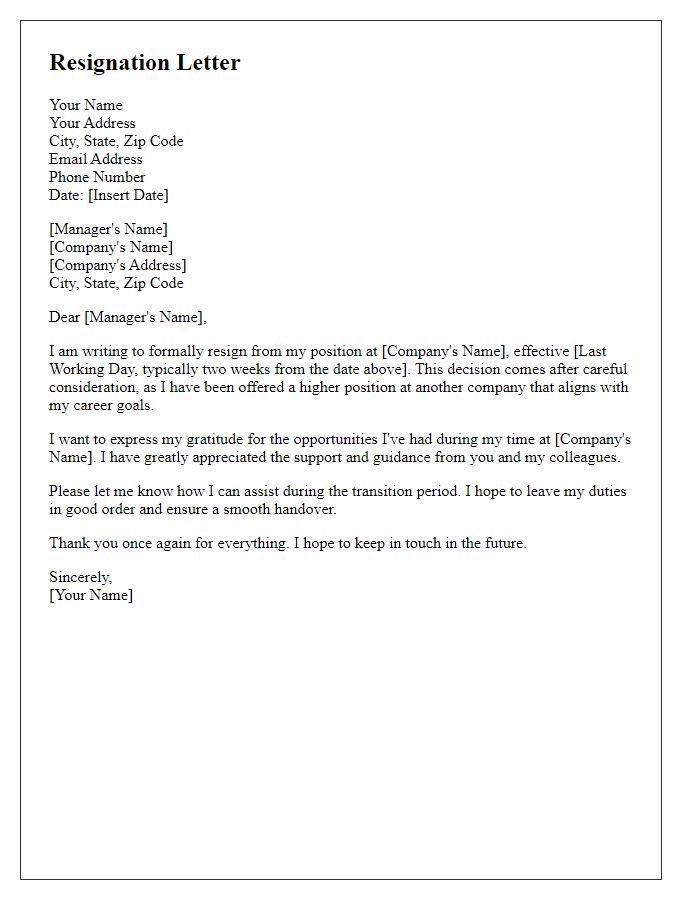
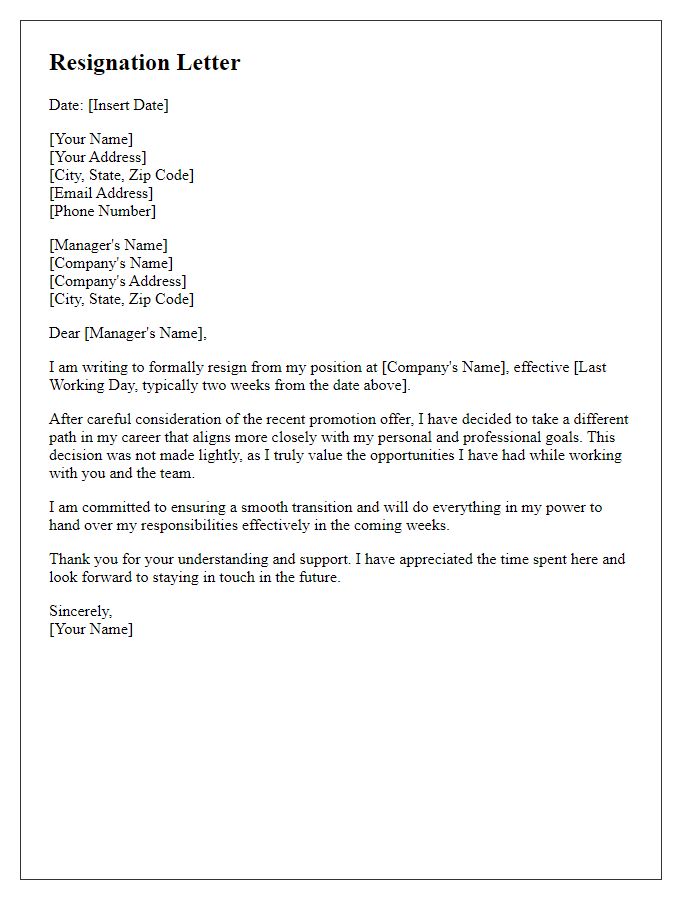
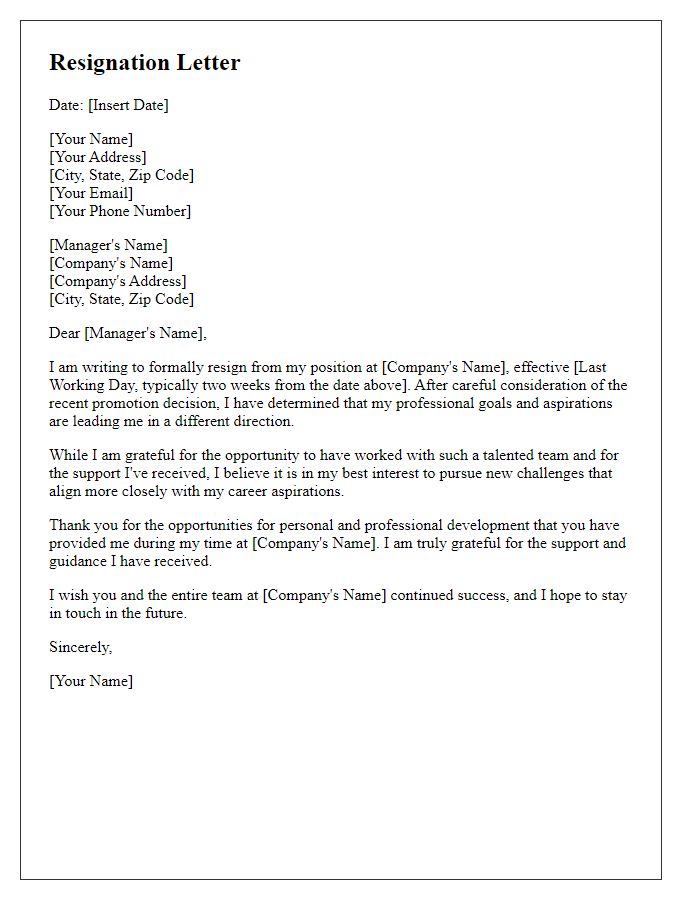


Comments